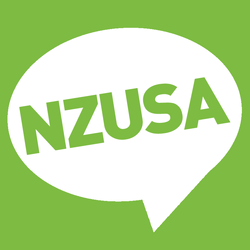NZUSA Media release: Wednesday 7 November
Moves to ensure student voice is not lost
The New Zealand Union of Student Associations (NZUSA) has reached an agreement with Tertiary Education Commission (TEC) chief executive Belinda Clark to ensure the student voice is not completely lost from the operations of the TEC and its Board.
“Following a meeting on Friday 2 November, we have confirmed that a limited opportunity to present to the TEC Board will continue, although at a level far below the role of the Non-Voting Learner Participant position that was summarily disestablished without any forewarning last month,” says Pete Hodkinson, NZUSA President.
“We appreciate that the TEC is taking this step to ensure scheduled occasions for representative learner feedback and engagement are not completely and utterly closed off. Given the significance of matters such as stakeholder input to the Tertiary Education Strategy it would, in fact, be a nonsense to exclude representative student views.
“Just in case no one has noticed, New Zealand’s tertiary education funding model is positioned as a cost-sharing model, which effectively puts students in the position of shareholders. They invest not just their talent, skills and aspirations across the choices sold to them by tertiary education, but also their yet-to-be-earnt income,” says Hodkinson.
“Adults in their hundreds of thousands have been enticed and often compelled by their personal and family circumstances, to pay towards rising fees for their education over the last 20 years by way of the Student Loan Scheme set to be debated by Parliament’s Finance & Expenditure Select Committee today.
“The financial stake alone that learners and students have in the tertiary education system should mean they are always represented in any and all discussions that impact on them as paying consumers and taxpaying citizens. Anything less is not only anti-democratic, it also ignores the way that the tertiary education market is artificially structured, and the co-dependency that exists between adult students, publicly accountable education providers and their communities.
NZUSA expects that a study into effective student voice commissioned this year with Ako Aotearoa – the centre for tertiary teaching excellence – will shed further light on the contribution made by student representatives to quality assurance in tertiary education.
_ends




 Gordon Campbell: On The Hikoi Aftermath
Gordon Campbell: On The Hikoi Aftermath Infrastructure New Zealand: Single Agency Needed To Coordinate Climate Adaptation And Recovery
Infrastructure New Zealand: Single Agency Needed To Coordinate Climate Adaptation And Recovery Free Speech Union: Fair Digital News Bargaining Bill Likely To Restrict Access To Information, Polling Shows Most Oppose
Free Speech Union: Fair Digital News Bargaining Bill Likely To Restrict Access To Information, Polling Shows Most Oppose Auckland Transport: Driver Safety Screens Now Rolling Out Across Auckland’s Bus Fleet
Auckland Transport: Driver Safety Screens Now Rolling Out Across Auckland’s Bus Fleet People Against Prisons Aotearoa: 'Expect Resistance' - Community Group Pushes Back Against More Cops With Guns
People Against Prisons Aotearoa: 'Expect Resistance' - Community Group Pushes Back Against More Cops With Guns Greenpeace: New Zealand Drops In Global Ranking On Climate Action
Greenpeace: New Zealand Drops In Global Ranking On Climate Action PSA: Spending Cuts Need To Stop - PSA Urges Govt To Listen To Economists
PSA: Spending Cuts Need To Stop - PSA Urges Govt To Listen To Economists


